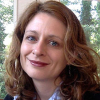Winners of the Untold Global Health Stories of 2019 Announced!
We are thrilled to congratulate Hikmet Ceyhun Göcenoğlu and Beth Ann Eanelli, the winners of the Untold Global Health Stories of 2019 contest.
Göcenoğlu’s entry highlights an effort to Improve Autism Diagnosis in Turkey, while Eanelli’s idea illuminates the Impact of Light on the Quality of Care that Health Workers Deliver. The two winners were revealed at a CUGH awards ceremony Saturday, along with 6 honorable mentions.
CUGH, NPR’s Goats and Soda blog, and Global Health NOW chose the winning ideas for their novelty, creativity, and potential to illuminate a little covered issue in the global health sphere, to feature in an exclusive story. NPR’s Goats and Soda Blog will cover Eanelli’s idea, and Global Health NOW will cover Göcenoğlu’s entry.
The competition, which seeks to identify and give a platform to neglected global health issues, drew more than 230 submissions—all ideas deserving of greater attention. We thank everyone who took the time to submit an entry.
Global Health NOW’s Winner
Improving Autism Diagnosis in Turkey, submitted by Hikmet Ceyhun Göcenoğlu, Msc, PhD of IBM/Turkey.
Göcenoğlu grabbed our attention with his entry, which begins with a moving quote:
"'As if it was my destiny, the diagnosing process and length was a challenge to my child’s autism diagnosis. Thanks to the Tohum Autism Foundation, my child was examined thoroughly. We received a report, examined by a medical committee and started training immediately.'—Mother of a child diagnosed with autism.
Although early intervention notably improves prognosis of autism, the length of the diagnosis process in Turkey is 3 to 6 months, decreasing the ability of a successful adaptation.
With government funding TOHUM created and implemented a new model of the diagnosing process that reduces the duration by 30% for the 140 children who were diagnosed with autism and other child developmental disabilities, out of 9,010 children screened.”
The NPR Goats and Soda Winner
The Impact of Light on the Quality of Care that Health Workers Deliver, submitted by Beth Ann Eanelli of Duke University.
Eanelli’s experience in The Gambia inspired her entry:
“For 2 years I lived in a small rural community in the Eastern part of The Gambia. This past summer, I had the opportunity to go back and research the impact of light on the quality of care that health workers are able to provide. In low resource settings around the globe, communities are off the electric grid and their local clinics and health workers lack the light to properly care for patients, perform deliveries, and get patients to referral centers. In the world of global health, we rarely look at light as a fundamental human right but it has an astonishing impact on health workers and in cases where people are still using kerosene lamps and candles- poses further risk of injury. Many solar companies are focusing on bringing light to areas off the electric grid, but the impact of light on health emergencies is rarely spoken about.
Honorable Mentions
The judges chose 6 Honorable Mentions as well. Congratulations to the following:
Infertility Care in Low- and Middle-Income Countries / Submitted by Marie Thoma, PhD, MHS, University of Maryland School of Public Health, USA
Developmental Disabilities in the Himalayan State of India / Submitted by Shubha Nagesh, MD, The Latika Roy Foundation, India
Female Genital Schistosomiasis in Gabon / Submitted by Clarissa Prazeres da Costa, MD, Center for Global Health, Technical University of Munich, Germany
Corruption in the Distribution of International Aid in Guatemala / Submitted by Amanda Garces, public health graduate, Schreiner University, USA
Access to Orthoses, the Little-Known Brother to Prostheses in Peru / Submitted by Cody McDonald CPO, MPH, PhC, University of Washington, USA
Alternative Methods to Decontaminate Well Water in Pakistan / Submitted by Cecily Sakrison, The University of Utah Water Center/US-Pakistan Center for Advanced Studies in Water, USA




